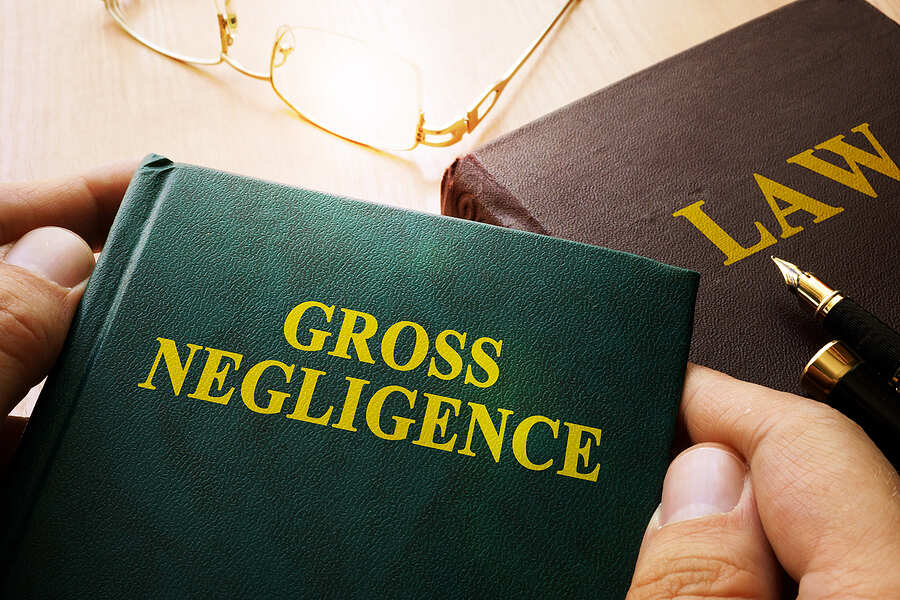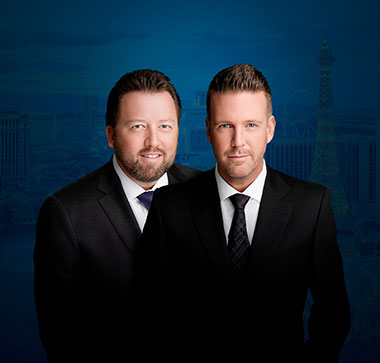Did you suffer injuries in an accident? Do you wish to file a personal injury lawsuit to obtain compensation for the harm you sustained? If so, you will undoubtedly hear the word negligence as you go through the legal process. However, you may not know what this word means. You may also not realize that different types of negligence can arise from an accident, such as ordinary negligence or gross negligence.
To help you understand more about these different types of negligence, we have prepared the following blog post. In it, we will go over what gross negligence is, what it can mean for your case, and how an experienced personal injury lawyer can help you pursue the damages you may deserve following an accident involving gross negligence.
What Exactly Is Gross Negligence?
Gross negligence is defined as a lack of care that shows reckless disregard for the lives or safety of others. Gross negligence is more than simple carelessness or failure to act. Instead, gross negligence is usually willful behavior or an act of extreme disregard that is likely to cause foreseeable harm.
Some examples of gross negligence include:
- A motorist who hits a pedestrian after speeding in a heavy pedestrian area
- A nursing home caregiver who fails to provide a resident food and water for several days
Because these actions often involve extreme carelessness or deliberateness, the damages a victim may recover after a gross negligence accident may increase. Some states even allow punitive damages. Punitive damages are meant to punish the defendant.
What Is the Difference Between Gross Negligence and Ordinary Negligence?
Legal terms such as gross negligence and ordinary negligence frequently arise in legal discussions. However, many people do not understand the difference between these two terms. As mentioned above, gross negligence is the reckless and deliberate disregard for the safety and reasonable treatment of others. Ordinary negligence, on the other hand, is defined as the failure to use the level of care and caution that an ordinary person would use under similar circumstances. This means that ordinary negligence often involves inattention or careless mistakes.
Examples of ordinary negligence include:
- A grocery store owner who causes a slip and fall accident by failing to immediately clean up a spill or place a wet floor caution sign after mopping up an area.
- A motorist who causes an accident after texting and driving.
- A property owner who injures a guest after they fail to take care of a dangerous condition on their property, such as a broken step
As you can see, in each of these instances, the at-fault party did not mean to harm the other person. Rather, the at-fault party’s careless actions resulted in the accident. However, even though the individual did not intend for the other person to suffer an injury, they can still face liability for the accident and the damages that resulted.
How Do You Prove Ordinary Negligence Following an Accident?
To collect financial damages for the injuries you endured in an accident due to another person’s negligence, you would need to establish:
- That the other party owed you a legal duty to take reasonable precautions and to protect you from harm.
- That the other party breached this duty through their actions.
- That the other party’s breach caused you harm.
- That you suffered actual injuries and losses, for which you can now claim damages.
If you establish each of these elements, you may have a valid injury lawsuit. Through your injury lawsuit, you can recover compensation for the harm you sustained, including medical bills, lost wages, property repairs, and other damages.
For these reasons, if you were injured in an accident, you should reach out to a skilled personal injury attorney as soon as possible. Your personal injury lawyer can investigate the incident, figure out what happened, and gather the evidence needed to prove each of the above elements. This will help you obtain the compensation you deserve for the losses you endured.
How Do You Prove Gross Negligence?
To prove gross negligence, you must establish that the other party was not only negligent, but also that they knew that their actions could cause harm to others, and yet they still intentionally continued to perform the act.
Although you may struggle to prove each of these elements, an experienced personal injury attorney can collect useful evidence, such as:
- Photos or videos of the accident
- Eyewitness testimony
- Medical reports
- Police reports
- Violations of statutes and codes
- Expert testimony
Following an accident where you believe gross negligence occurred, it is helpful to reach out to an experienced personal injury lawyer. Your injury attorney can investigate your claim, secure the evidence needed to show what happened, and help you use this evidence to prove that the other party was grossly negligent.
Potential Damages Available Following an Accident Due to Negligence or Gross Negligence
If another person’s willful or negligent conduct harmed you in an accident, you might be entitled to certain types of compensation. Generally, this compensation includes the following types of damages:
Economic Damages: These damages are the easily verifiable losses that result from an accident.
For example:
- Medical bills related to hospital stays, surgeries, prescription medications, doctor visits, emergency services, assistive medical devices, and rehabilitative therapy, such as physical and occupational therapy
- Lost wages
- Lost earning capacity
- Personal property damages, including replacement costs or repair costs
- At-home nursing care
- Costs related to at-home replacement services
- Other out-of-pocket expenses
Non-Economic Damages: These damages refer to the subjective losses that result from an accident. These losses are usually not easy to quantify and are often hard to prove.
They include:
- Pain and suffering
- Mental anguish
- Loss of companionship
- Loss of consortium
- Loss of enjoyment of life
- Inconvenience
- Loss of reputation
In addition, if the accident was due to another person’s gross negligence, courts in some states may award punitive damages. Unlike economic and non-economic damages, which compensate the victim for their losses following an accident, punitive damages serve two purposes. They seek to punish the at-fault party for their wrongful actions and to deter others from committing similar actions.
However, for a court to award punitive damages, the lawyer needs to show through clear and convincing evidence that the at-fault party committed particularly egregious actions. As a result, some courts only award punitive damages when the at-fault party is guilty of gross negligence.
Steps to Take After an Accident Involving Gross Negligence
Following an accident that caused you to suffer significant injuries and losses, the last thing you want to worry about is figuring out which steps or actions you need to take next. However, after an accident involving gross negligence, the next steps you take can keep you safe and protect your legal rights. For these reasons, following an accident due to gross negligence, you should:
#1. Contact the Authorities Immediately
After an accident, you should immediately contact 911. Doing so is the quickest way to notify the police of the accident, get it on record, and alert medical personnel that you or another person at the scene needs medical help. Once the police arrive, they can investigate the incident and write down their findings in their police report. If you decide to pursue a legal claim following your accident, this report can help show what happened and whether gross negligence was involved.
#2. Gather as Much Evidence From the Scene as You Can
If the circumstances of the accident allow for it, you should try to collect as much evidence from the accident scene as you can. This evidence should include pictures and videos of the accident, your visible injuries, and any other evidence that can help show what happened. For instance, if you were involved in a drunk driving motor vehicle collision, you should try to take photographs of the vehicles involved in the accident, skid marks on the street, traffic lights near the area, and evidence that can help show that the other motorist was driving impaired, such as alcohol bottles in the front seat.
#3. Get Details From Others Involved in the Accident
Try to exchange information with those involved in the accident, including names and contact details. If the accident involved a motor vehicle collision, make sure to also try to get insurance details and driver’s license details. As you exchange this information, be careful of what you say. You do not want to make any definitive statements about the incident, apologize for anything that occurred, or take the blame for anything that happened. These types of comments, even when made in passing, could hurt your case.
#4. Watch What You Say to the Insurance Adjusters
It can be difficult to collect money from the insurance company after an accident, even when the accident involves gross negligence. Insurance companies may not be as committed to quickly processing your claim as you are and may intentionally delay it. They may not investigate every avenue of compensation for you, meaning that you get less compensation than you may deserve.
For these reasons, before you speak with the insurance company about your accident, you should first contact a skilled personal injury attorney. These lawyers can make sure that you are aware of the insurance company’s practices and can also step in to handle discussions with the insurance company on your behalf, to advocate for you and any compensation you may deserve.
Get the Legal Help You Need Following an Accident Involving Gross Negligence
If you suffered harm because of another person’s reckless, malicious, or negligent actions, you might be entitled to justice and compensation for the harm and losses you sustained. Fortunately, when you work with an experienced personal injury attorney, you will not have to fight for this justice alone.
If a personal injury attorney takes your case, your lawyer might:
- Go over your accident with you in detail, figure out if you have a viable case, and determine the legal options you can pursue.
- Answer all your questions and concerns regarding your case and the legal process involved.
- Provide you with the legal support you need during this difficult time in your life.
- Investigate the incident and secure the evidence needed to prove fault and damages.
- Obtain experts, including doctors and accident reconstructionists, to substantiate your claim and help prove gross negligence if it is at issue in your case.
- Ensure that legal files and motions are correctly prepared and filed before the statute of limitations expires.
- Proceed to trial if the other side does not want to offer you a fair settlement amount, and pursue damages.
If your life has been disrupted by an accident or injury due to another person’s negligence or gross negligence, do not wait to inquire about the legal help you may need. Instead, contact a skilled and knowledgeable personal injury attorney today for a free case evaluation.


